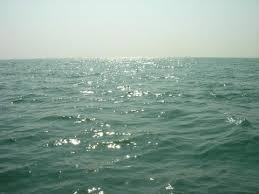‘Without technology nothing tangible is possible’
Bangladesh needs to be serious about preservation, exploration and optimum utilisation of marine resources through adopting a comprehensive policy as recent triumphs against India and Myanmar over maritime boundary disputes have opened up enormous opportunities for the country, say marine experts.
Today Bangladesh, according to the experts, cannot afford to turn away from the sea, the untapped frontier as the sea can only now provide the alternative to land resources which can help boost the economy and create huge employments.
Bangladesh needs to create marine scientists, develop capacity to explore resources with adequate skilled manpower and required tools and engage in extensive researches as the resources at the Bay of Bengal can play a massive role in changing the country’s economic scenario, they observe.
“Apart from gas, there’re so much of other resources that remained unidentified because there has been no specific research,” Prof Dr M Maruf Hossain of Institute of Marine Sciences and Fisheries, Chittagong University told UNB.
He said the government will have to give the same priority to exploration of marine resources the way it had done in ending maritime disputes with India and Myanmar.
Responding to a question, Prof Maruf said Bangladesh is not only a riverine country but also a maritime nation. “Unfortunately, we don’t have any maritime policy.”
The Bay of Bengal, the largest bay in the world, is bounded by eight countries — Bangladesh, India, Indonesia, Malaysia, the Maldives, Myanmar and Sri Lanka.
“Each country except Bangladesh under the Bay of Bengal has such maritime policy,” Prof Maruf said adding that it will be easier to identify lacking if Bangladesh formulates a policy.
He laid emphasis on having the right person in the right position at the policy level, and mentioned that a national institute should be created to deal with the maritime resources.
“A technical committee will have to be formed to identify the lacking with necessary training. It’ll take time to have skilled manpower. So, we can take a long-term 10-year programme,” Prof Maruf suggested.
Secretary (Maritime Affairs Unit) at the Ministry of Foreign Affairs Rear Admiral (retd) M Khurshed Alam said, “We need a sea-based scientist community. We’ve the scope to enhance workforces and boost capacities.”
He said efforts are there over the issues including setting up National Oceanography Research Centre in Cox’s Bazar.
The total collection of fish from the Bay is around 6 million tonnes annually. “Of this, our share is only 0.29 million tonnes,” said Khurshed Alam adding that Bangladeshi fishermen can only fish within 50 nautical miles now due to limited facility.
Prof Dr M Shahidul Islam of Dhaka University’s Department of Geography and Environment said, “We can catch fishes within only 50-60 nautical miles. We need to enhance capacity.”
He laid emphasis on university-level research as people’s awareness and interest have increased following the two consecutive verdicts that have come in favour of Bangladesh.
Responding to a question, he said it is not possible to get benefit fully from marine resources without technology. “We’ve to make our efforts faster.”
Ayaj Hossain Chisty of the Fisheries and Marine Resource Technology Department, Khulna University said, “Like Thailand, we must adopt a proper policy for the management of fisheries resources. It’ll greatly help boost the economy.”
He stressed increasing manpower to protect sea resources.
Responding to a question, he said nothing is visible in terms of progress after the victory against Myanmar. “Things remain on papers only. We didn’t see anything tangible, fruitful. We need sustainable exploration policy.”
There are about 511 species of fish, including 36 of shrimps, in the marine fishing ground in the Bangladesh territory against some 260 species of sweet water fish.
Bangladesh gained some 19,467 square kilometers of maritime areas at the Bay of Bengal out of the disputed approximately 25,602 square kilometers with neighbouring India.
With this verdict, Bangladesh has won more than 118,813 square kilometers of waters comprising territorial sea, exclusive economic zone extending out to 200 NM across sizable area, and also have ‘undeniable’ sovereign rights in the seabed extending as far as 354 NM from Chittagong coast in the Bay of Bengal with all the living and non-living resources.
Earlier, on March 14, 2012 the maritime boundary of Bangladesh was delimited with Myanmar by the International Tribunal for the Law of the Sea (ITLOS).
Source: UNB

